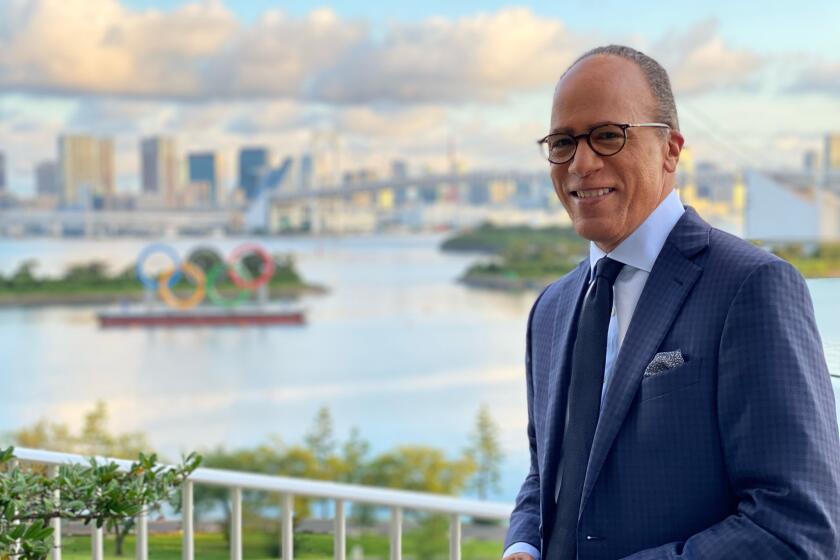Lawmakers Assure Blacks on Right to Vote
- Share via
WASHINGTON — For more than a year, Internet messages have raised fears among black Americans that Congress plans to repeal the Voting Rights Act in 2007.
One e-mail entitled “The Awakening” declared: “In 2007 Congress will decide whether or not blacks should retain the right to vote. In order for this to be passed, 38 states will have to approve an extension. . . . What many blacks before us fought and even died for as well as the milestones that we, as blacks have achieved, this can be taken away from us . . . AGAIN!”
During the last year, offices of black lawmakers report that they have received hundreds of calls--sometimes as many as 50 to 70 in a four-week period--from black people who are genuinely alarmed after getting these e-mail messages.
Congress has no plans to repeal the law, enacted in 1965 to enforce African Americans’ right to vote. And what is up for renewal in 2007--the portion of the law that requires southern states to get pre-clearance for any changes they make in voting laws--is likewise expected to be extended, perhaps for as much as 50 years.
But the voting-rights rumor has spread so far and become so credible among a broad swath of black Americans that Thursday a group of lawmakers took the unusual step of publicly denying it.
“As many of you may know, false information about the Voting Rights Act is being widely circulated by e-mail on the Internet,” said Rep. John Lewis (D-Ga.), who played a key role in the passage of the landmark legislation 33 years ago. “Congress does not have the power to take away the right to vote for African Americans.”
Lewis was joined by members of the Congressional Black Caucus, including Rep. Maxine Waters (D-Los Angeles), who chairs the group. “The e-mail is simply inaccurate,” Waters said. “African Americans’ constitutionally guaranteed right to vote will not expire.”
That a rumor as preposterous as this could be taken seriously enough to prompt Lewis, Waters and other black legislators to publicly rebuke it underscores the power of the Internet and the level of distrust of the federal government in black communities.
“I believed it,” said Niobis Anderson, a consultant with a large New York accounting firm. “I read it about three weeks ago when somebody I know sent it to me in an e-mail message. It piqued my interest but I didn’t question it. I sent it to a friend and their reaction was ‘Wow! Is this for real? We should do something about this.’ ”
In this case, too, history offers plenty of reasons for fear. Daryl Scott, associate professor of history at Columbia University in New York, said voting rights were guaranteed to all citizens, including blacks, in 1870 by the 15th Amendment. But rights for most blacks, especially those living in the South, were not protected until passage of the Voting Rights Act nearly a century later. The historic failure of Congress and white lawmakers to protect black rights sticks in the collective memory of black Americans.
“African Americans have a deep suspicion of a lot of lawmakers,” said Scott. “Throughout history, lawmakers have undermined the Constitution and the 15th Amendment to harm black voters. So, when somebody sends out a warning that African American rights are imperiled, there’s this historical basis for that [possibly] being the case. We’re not so quick to say it’s not possible, that it couldn’t happen because we know it has happened before.”
Scott said it is not necessarily a negative thing for rumors--even those that prove to be inaccurate--to be spread among blacks on the Internet. “The Internet is the most democratic form of communication that the people have at this point,” he said. “I have the belief that it’s better to hear the raw claims that may be disproved later rather than to get no information at all.”
Indeed, the rumor that black Americans can vote only at the whim of Congress gained an additional dollop of respectability last month when Camille O. Cosby, philanthropic activist and wife of entertainer Bill Cosby, cited the need for congressional action to protect black voting rights as a form of racism in American institutions.
In a July 8 commentary published in USA Today, Cosby repeated the Internet rumor as fact. “Congress once again will decide whether African Americans will be allowed to vote,” Cosby wrote. “No other Americans are subjected to this oppressive nonsense.”
Patricia A. Turner, a professor of African American studies at UC Davis and author of “I Heard It Through the Grapevine: Rumor in African-American Culture,” said that, if a celebrity or respected person in the black community endorses a rumor, it becomes more credible.
“People will say, ‘I know it’s true, I got an e-mail on it,’ ” she said. “We used to circulate news important to our community in barbershops and churches. Now black people are communicating in cyberspace. That says something about the power and the speed with which information circulates in our community.”
More to Read
Get the L.A. Times Politics newsletter
Deeply reported insights into legislation, politics and policy from Sacramento, Washington and beyond. In your inbox twice per week.
You may occasionally receive promotional content from the Los Angeles Times.










